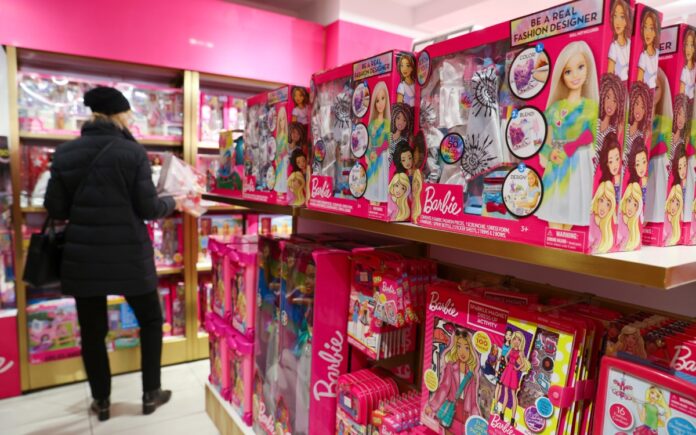El Segundo, California: Toy giant Mattel has pulled its full-year financial forecasts and announced plans to raise prices on select products in the United States, citing rising input costs stemming from the Trump administration’s escalating trade tariffs.
In a statement released Monday, Mattel cited “the volatile macroeconomic environment and evolving U.S. tariff landscape” as reasons behind its decision, noting the difficulty in predicting consumer behavior and domestic sales performance for the rest of the year, particularly during the critical holiday season.
The U.S. market accounts for nearly half of Mattel’s total global toy sales. Currently, approximately 20% of the company’s U.S.-sold products are imported from China. Mattel said it aims to reduce that figure to below 15% by 2026 in an effort to mitigate the financial impact of trade disputes.
The U.S.-China trade war, intensified since President Donald Trump took office, has led to reciprocal tariffs exceeding 100% on numerous goods, disrupting global supply chains and forcing companies like Mattel to re-evaluate their operations.
“There’s no question that tariffs are creating disruption in the industry. Many companies have stopped production and shipping to the U.S. as a result of tariffs from China. We do support the Toy Association’s advocacy for zero tariffs on toys,” Mattel CEO Ynon Kreiz told Reuters.
To adjust to the new landscape, Mattel is restructuring its supply chain strategy. Production of the popular UNO card game is being expanded in India to serve U.S. consumers, while Chinese manufacturing will increasingly target international markets, Kreiz added.
Besides China, Mattel also imports products from countries like Indonesia, Malaysia, and Thailand. These nations were subjected to retaliatory tariffs earlier this year, though those measures were temporarily paused for 90 days in April.
Mattel anticipates about $270 million in added costs this year due to tariffs, beginning in the July quarter. However, outgoing Chief Financial Officer Anthony DiSilvestro said the company’s mitigation strategies—including operational adjustments and pricing—are expected to fully offset the financial burden.
To further manage expenses, the toymaker plans to reduce promotional spending and has raised its annual cost-saving target from $60 million to $80 million.
“The toymaker is squarely in the crosshairs of Trump’s tariff war,” said Zak Stambor, senior analyst at Emarketer.
Previously, Mattel had projected 2025 adjusted earnings per share between $1.66 and $1.72, along with annual net sales growth of 2% to 3%. However, those projections are now on hold.
Also Read | AI-Powered Images of Trump Stir Controversy, Challenge Reality in Politics
In contrast, rival Hasbro has maintained its financial outlook, buoyed by the strong performance of its gaming division. Hasbro sources about 50% of its U.S. toys and games from China.
Despite the uncertainty, Kreiz noted that the second quarter had started on a positive note, with demand showing signs of recovery.
Also Read | Google Launches New Film and TV Production Arm ‘100 Zeros’ in Bid to Expand Media Footprint
Mattel’s financials for the first quarter exceeded Wall Street expectations, posting net sales of $827 million, compared to the analyst forecast of $786 million, according to LSEG data. The company also reported an adjusted per-share loss of 3 cents—narrower than anticipated.
Mattel repurchased $160 million worth of shares during the quarter ending March 31 and reaffirmed its $600 million buyback target for 2025.



